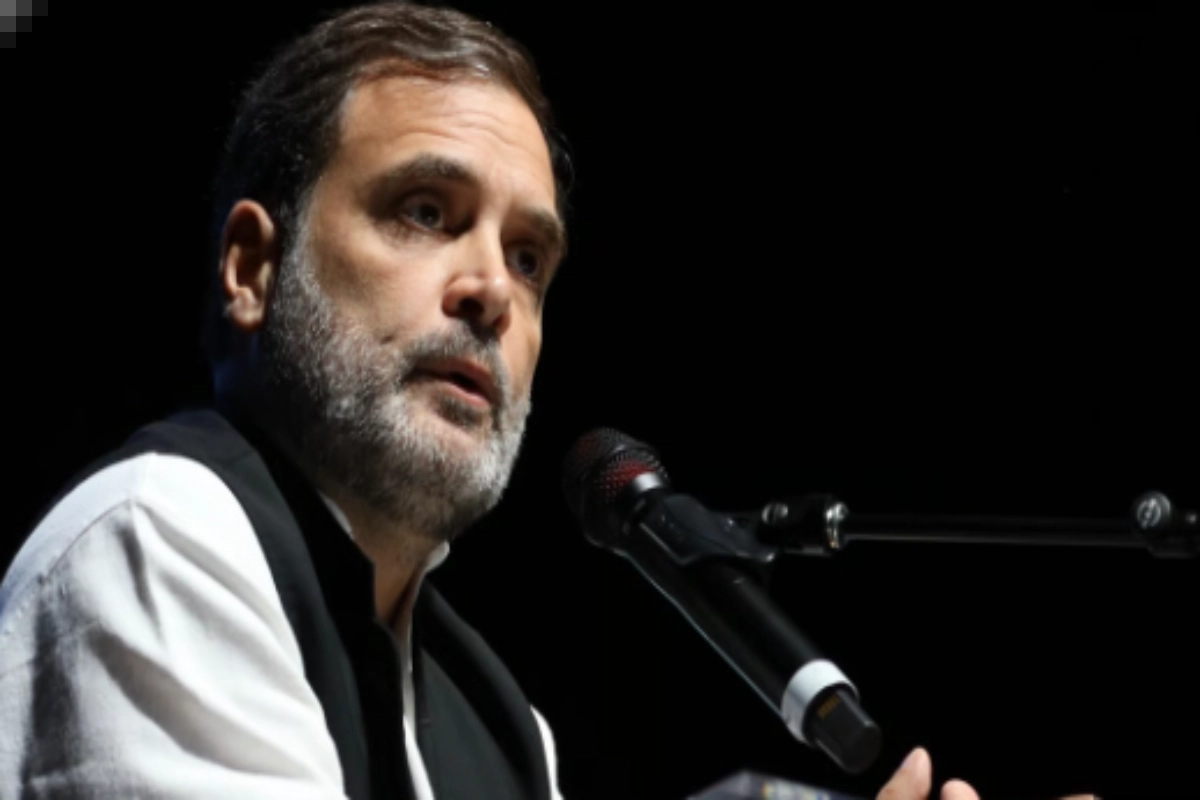Rahul Gandhi: Congress MP and LoP in Lok Sabha Rahul Gandhi spoke with emotion about the ideological cleavage between the Bharatiya Janata Party and the Congress regarding pluralism and protection of the Constitutional values of India as he spoke to a gathering of the Indian diaspora in Dallas in Texas. His remarks, during a three-day visit to the United States, strongly resonated with the audience, underlining deep concerns about the current political climate in India. But is it right to go abroad and discuss the internal problems of country? Let’s find out.
The Ideological Battle- One Idea vs Multiplicity of Ideas
Rahul Gandhi, while addressing the gathering organised by the Indian Overseas Congress, began by making a comparison between the ideological moorings of the BJP and the Congress. He said the BJP, particularly under the influence of the RSS, views India as one entity-a notion that itself ran against the very diverse and multifaceted nature of the nation. “The RSS believes that India is one idea,” Gandhi said, “and we believe that India is a multiplicity of ideas.”
This plurality, he explained, is what makes India unique, much like the United States. He said India’s strength lay in its diversity, where every person of any caste, language, religion, tradition, or history is given space to participate and dream. “This is the fight,” he said, “and this fight was crystallized in the election when millions of people in India clearly understood that the Prime Minister of India is attacking the Constitution of India.”
Constitution’s Protector
He reiterated that the Constitution, a respecter of India’s diverse languages, religions, traditions, and castes, was the modern basis of the country. He dares argue that since the BJP policies and actions were seen to have attacked those constitutional values, they have been perceived as an attack on the richly and variedly endowed traditions of the country. “Every single word that I said to you is in the Constitution,” he added, referring to the recent elections in which the people of India recognised these threats.
DON'T MISS
Gandhi’s allusion to the Constitution was an invocation in itself-a call to arms aimed at those who believe that the democratic fabric of India is being stretched. He felt proud of the fact that, from across the country, people rose up against what they felt was an erosion of their rights and freedoms. “What they understood was that anybody who is attacking the Constitution of India is also attacking our religious tradition,” he said, emphasizing how both are interlaced with the Constitution
The Fearlessness Sign
Rahul Gandhi also referred to how, in his maiden speech in Parliament, he introduced the concept of ‘Abhayamudra’—a symbol of fearlessness. He said, “This act of holding the hand backwards, as done by most religions in India, shows a certain fearlessness, collectively, which they did not understand.” “Guru Nanak holds his hand like this. Shiva holds his hand like this,” he said, making the gesture. This, he said, was a symbol of fearlessness so deep-rooted in the Indian culture, which his party, Congress, too imbibed.
He reflected on the aftermath of the election results: “There was a sea change that happened in terms of the way the BJP was perceived by the public.” According to him, the BJP had elicited fear in the hearts of many Indians, but all this dissipated almost immediately after the election. “Within minutes of the election result, nobody in India was scared of the BJP or the Prime Minister of India,” he said, adding that this is a big achievement not for the Congress alone but for the people of India.
The Indian Diaspora
The INC leader also spoke to the Indian diaspora as part of his address, focusing on how they are cultural ambassadors between their home and host countries. He saluted the diaspora for carrying in their hearts the Constitution of India-values of respect, humility, and love-as they made their lives in the United States. “You are our ambassadors in one way,” said Gandhi, asking them to continue bridging between the two countries by sharing the ideals of both nations.
As Gandhi concluded, the message he had given was one of hope and resilience. He called for standing up to democratic principles and preserving the pluralistic fabric of India. From the time Gandhi was welcomed by the warmth in Dallas to the meaningful dialogues, it brought back into memory the fact that the democratic journey of India had relevance for the entire world and that the constitutional values of the nation would always stand strong.
